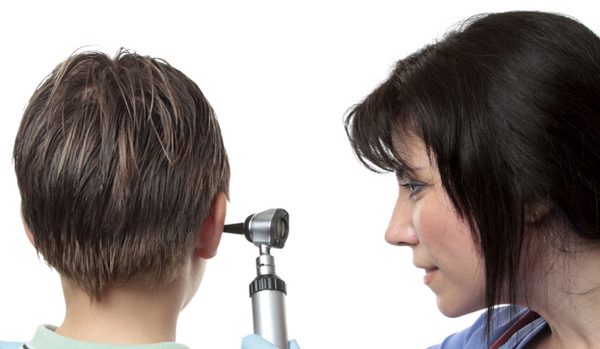Specialized Audiologists: What Areas Do They Focus On?
Entering the world of hearing health can seem complex if you’ve never

By: admin | April 18, 2023
If you have just learned that your child has a hearing loss, you may be feeling overwhelmed and unsure of where to turn. You are not alone. Every year, thousands of parents learn that their child has hearing loss. The good news is that with early intervention, most children with hearing loss can develop listening and spoken language skills that allow them to thrive in school and in life, not to mention the assistive technology available.
This article will provide an overview of early intervention for children with hearing loss, including what services are available and how to get started.
Hearing loss can be caused by a variety of factors, spanning from genetic conditions to illnesses and infections. It can be present at birth or emerge later in life. In some instances, hearing loss can be caused by a combination of factors, such as a genetic defect coupled with exposure to loud noise.
Genetic hearing loss, which is caused by variations in the genes that regulate the growth of your ear and auditory nerves, is the most prevalent type of congenital hearing loss. Acquired hearing loss can be due to viral infections such as measles, meningitis, mumps, physical trauma to the head or ear and environmental causes such as noise exposure and aging.
Other causes include physical problems such as blockages of the ear canal, otosclerosis, medications that are toxic to the ears, tumors that grow on auditory nerves and autoimmune diseases like lupus.
It is important for parents who have children with hearing loss to seek early diagnosis and treatment so they can get them access to the necessary support they need in order to succeed. Early intervention services provide families with critical resources and advice needed for successful outcomes for their child’s future academic and social development.
There are three main types of hearing aids available: behind the ear (BTE), in the ear (ITE) and in the canal (ITC). BTE hearing aids are the most common type, and they fit over or behind the ear. They are designed to amplify sound and direct it into the ear canal. In addition, BTE hearing aids can easily be adjusted, making them an excellent option for people with mild-to-profound hearing loss.
ITE hearing aids fit entirely into the outer bowl of the ear. These devices are suitable for people with mild-to-moderately-severe hearing loss, as they provide high sound quality and feedback reduction. ITC hearing aids have been specifically designed for people with mild-to-moderate hearing loss; not only do these devices provide excellent sound amplification, but they also sit discreetly in the ear canal.
No matter which type of hearing aid you choose, it is important to make sure that it is fitted properly by an audiologist who understands your needs and preferences. It’s also important to remember that using a device alone will not improve hearing; rather, it should be accompanied by speech therapy sessions, lifestyle modifications and regular checkups with your audiologist in order to achieve optimal results.
Working with an audiologist is critical for people with hearing loss because they can provide important tools and guidance to help them achieve their goals. An audiologist is a specialist in the diagnosis, evaluation and treatment of hearing loss. They are trained to conduct hearing assessments that include audiometric and other tests, suggest the best treatments, such as hearing aids or cochlear implants and provide communication strategy counseling.
It’s essential to work one-on-one with an audiologist who is aware of your unique needs and preferences because every individual with hearing loss is unique. A knowledgeable listener will be able to guide you through the process and help you decide on the most effective plan of action.
Hearing loss can be challenging at times, but with the proper knowledge and assistance, you can get back to living and enjoying life fully! It’s crucial to receive an early diagnosis so you can gain access to the tools and treatments you need to see positive results. Speaking with an audiologist who comprehends your needs and preferences is crucial because there are various types of hearing aids accessible, each suited for different levels of hearing loss.
Children with hearing loss can lead satisfying lives by working with an audiologist. To schedule an appointment, feel free to get in touch with us at EarTech Audiology by calling at (866) 464-1008 and take the first step to helping your child treat their hearing loss.
Tags: pediatric audiology

Entering the world of hearing health can seem complex if you’ve never
By: admin | January 31, 2024

A pivotal figure in the workplace, a hearing specialist plays a crucial
By: admin | December 28, 2023

Hearing tests are essential for determining whether you have hearing loss
By: admin | November 25, 2023
